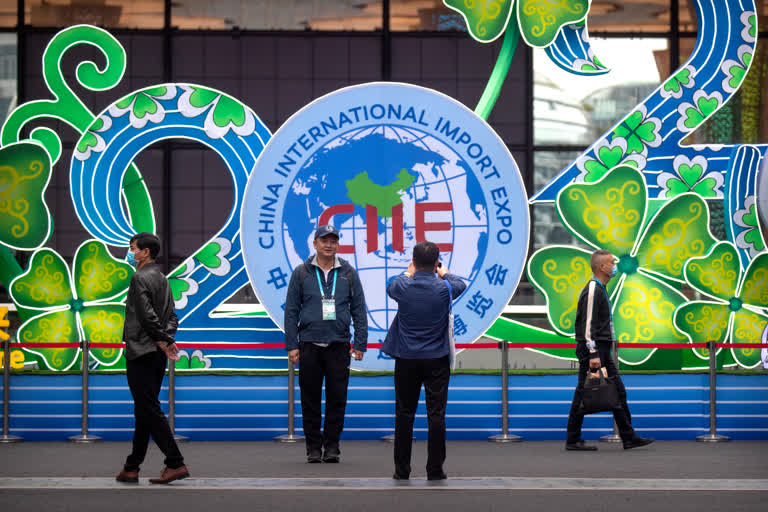Shanghai:China kicked off its top international trade expo on Thursday with COVID-19 pandemic still on the rise elsewhere in the world.
As an effort to deflect complaints about Chinese restrictions on foreign access, the expo highlights the country as a growing market for imported goods.
The organizer said more than 2,600 overseas exhibitors have taken part in this years CIIE, including hundreds of U.S. companies.
Tyson, the U.S. food giant, brought chicken, beef and pork products to the expo, with the hope of expanding its market share in China.
Zhou Quan, Tyson's Public Relations Manager, told the Associated Press that this year the company saw a 100 per cent sales increase in China, as Chinese families spend more on high-quality protein products during the pandemic.
Read:|China vows to become self-reliant 'tech power'
"We feel quite encouraged by the government, that we feel like the Chinese government quite welcome us, or welcome all the international enterprises to bring in their high-quality products to China," said Zhou.
U.S.-Chinese relations have plunged to their lowest level in decades amid an array of conflicts over the coronavirus pandemic, technology, trade, security and espionage, but U.S. exhibitors voiced their optimism over the Chinese market.
Zhang Xiaoping, Director of Greater China of the US Soybean Export Council, said the US would export more than 30 million metric tons of soybeans to China by the end of this year, a 50 per cent increase compared to last year.
President Donald Trump shocked China's leaders by hiking tariffs on Chinese exports in 2018 over complaints Beijing stole or pressured U.S. companies to hand over technology.
